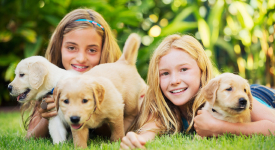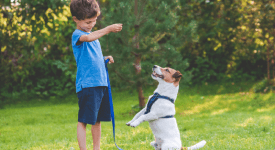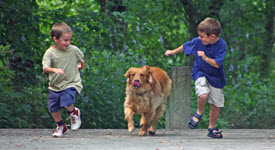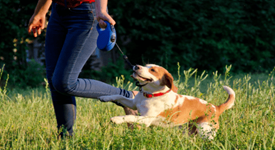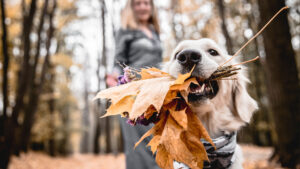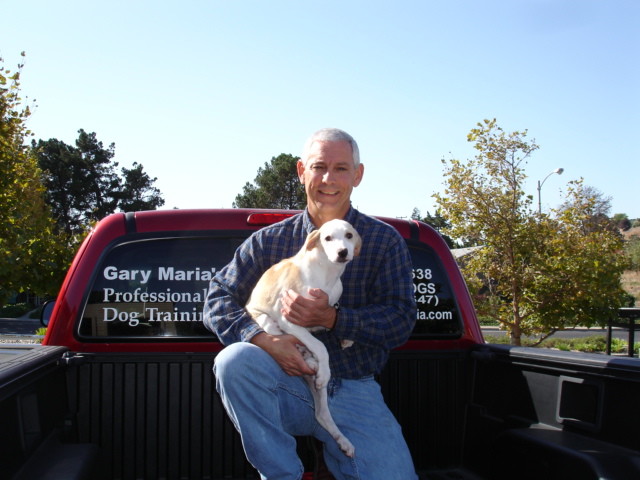The goal of socializing a puppy is to help a puppy develop a stable temperament and strong nervous system.
During the early stages of its life, the puppy is encountering many situations that may stress it and make it fearful. So, in stressful situations your puppy could over-react in a negative manner. Careful socialization will help prevent phobias and fears from developing in the puppy during its most critical molding time.
Therefore, socialization of a puppy at a young age is critical. Socialization includes interaction with other people and dogs, all in a safe environment. The most critical time for a puppy’s social development is from 28 days (4 weeks) to 14 weeks of age.
Until a puppy is 10 weeks of age it should be at home in a quiet environment getting used to its new family. Do not have friends or family members over to see the puppy until 10 weeks of age. This lets the puppy’s nervous system relax a little.
Puppies should be taken to vet for a check-up or shots, but that should be the only travel. At 10 weeks of age it is time to broaden your puppy’s life.
Some critical things that will help socialize your puppy so it becomes a well-adapted adult dog are:
- Your puppy’s nervous system is under stress. Your puppy has gone through a series of major physical and growth changes in just a few weeks. A puppy’s nervous system is much stronger at 16 weeks of age. This means you should not reprimand or use a harsh tone of voice with a puppy. No correcting the puppy. The only thing that will happen is you will teach the puppy not to trust you.
- Do not put your puppy in stressful situations. You need to get the puppy out of the house but be careful. Socialization with other dogs must be carefully supervised. Remember, one bad experience could cause permanent damage, fear or phobias.
- Get your puppy in many different situations, looking around and smelling different environments. A great way to do this is to allow the puppy to be a big part of the family. Take the puppy along to pick the kids up from school, to soccer practice, dance classes, and so on. Until 16 weeks of age, the puppy needs to do more than our normal routines. The puppy needs to get out to a new location daily. Puppies are situational learners so this will enable your puppy’s learning early on.
- It is critical that your puppy is comfortable at all times. Never force the puppy into what it perceives as a scary or threatening situation. This does not work, this only reinforces the fear. Do not push the puppy into a new learning experience. You cannot go at your speed. You must go at the puppy’s speed.
- Realize you have until 16 weeks of age with your puppy to make all of this happen. This is why it is critical to the get the puppy out every day.
These are all important steps to socializing a puppy to ensure the puppy has had significant exposure to a variety of experiences.
